In Greek mythology, many of the Gods have both positive and negative traits. This was to make them somewhat relatable to the normal Greek person who themselves was fallible.
However, there are some Gods and Goddesses whose evil side can very often get the better of them. This side to their personality can be evil, dangerous and incredibly destructive and goes well beyond normal behaviour.
And there are many gods who have less than a stellar record in Greek myth. Their evil attempts to wreak havoc were usually petty and always extreme. Some of the gods that find themselves on this list aren’t always viewed as evil, but they all have their own nasty qualities that land them here.
What follows is a list of the most evil and dangerous Greek Gods and Goddesses. Some of the choices might surprise you, but we feel they deserve their place!
The Most Evil and Dangerous Gods and Goddesses in Greek Mythology
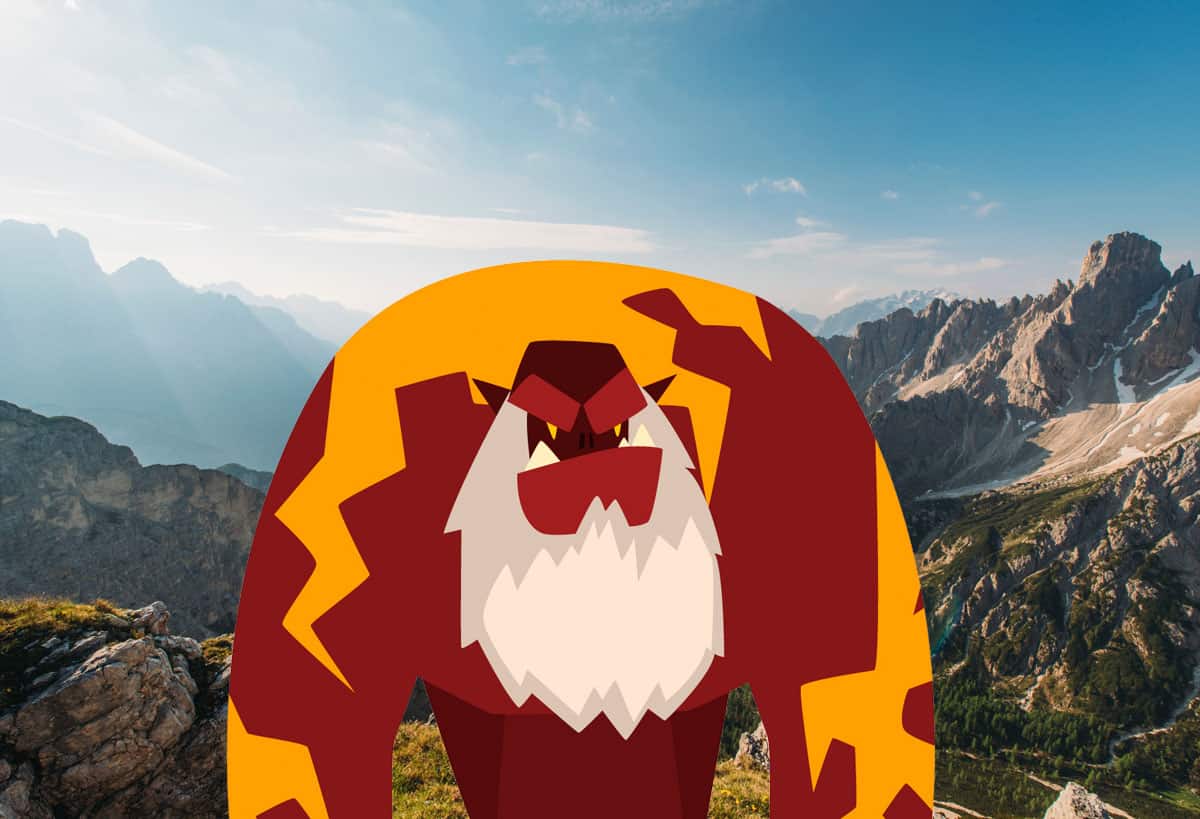
1. Cronus
Cronus was the son of Uranus, God of the Sky, and Gaia, Goddess of the Earth. He was the King of the Titans in the era prior to the reign of the Olympians and ruled with an iron fist. He had 5 brothers and 6 sisters, one of who, Rhea, he married. He was the Titan God of time, and in particular destructive time.
He had a disloyal personality, often betraying those who had once helped him. He was unforgiving and took pleasure in the act of vengeance.
Cronus, along with his 4 brothers overthrew their father Uranus. Uranus had imprisoned some other brothers of Cronus, the 100-handed giants and the 1-eyed giants. This angered both Cronus and their mother Gaia. Together they decided to overthrow Uranus. The four brothers held down Uranus, the sky God, each holding down one corner. The four brothers represented North, South, East and West. Cronus then, using a particularly gruesome means of dispatch, a sickle, castrated Uranus.
As King of the Titans, Cronus wasn’t much better of a ruler than his father. He imprisoned both the giants again and later he even imprisoned his co-conspirator brothers. Also, upon hearing a prophecy that he was going to overthrown by one of his own children, he took to eating his children every time his wife gave birth. Quite a terrible character.
2. Apate
Apate was the daughter of Erebos, the God of Darkness, and Nyx, the Goddess of Night. An ominous lineage if ever there was one. She had a number of siblings including Moros, who represented doom, Nemesis, representing retribution, and the Keres, representing violent death. She was the Goddess of deceit, deception, guile and fraud, not someone to bump into in the street.
She was cunning and deceitful and could twist any situation to work in her interest. She could also be very cruel and would take great pleasure in destroying people’s lives.
One of the most famous myths with Apate involves Zeus, Hera and Semele. Zeus had had an affair behind Hera’s back, as he often would, with Semele. As revenge Hera told Apate to convince Semele to ask Zeus to show her his true form. Unknown to both Semele and Zeus, the sight would kill Semele. As such Semele was burnt up by the sight of Zeus.
Apate along with many of her siblings were also said to be the evil spirits that escaped from Pandora’s box, she is one of the more obvious choices for this list.
3. Eris
Eris was the daughter of Zeus and Hera and the twin sister of Ares, the God of War. She was the Goddess of Conflict, Strife, Discord and Contention. Not the best of combinations.
She would haunt the battlefield and took great delight in the act of war. She and Ares would often ride together, crying with glee at the terrible sight of war. She was often involved in all types of conflict, family arguments, blood feuds and wars over territory. She was despised by many of the other gods and they often wouldn’t choose to interact much with her.
Probably the most famous myth involving Eris is that of the Judgement of Paris. Because she was so disliked by the other Gods she was not invited to the wedding of Peleus and Thetis. She turned up anyway and was refused entrance. As revenge she threw an apple amongst the goddesses with the words to the fairest written upon it.
The Olympians, being the egotists that they were, all thought the apple was for them. After much disagreement, the Prince of Troy, Paris was given the task of deciding on who was the fairest. He chose Aphrodite and as a reward she caused Helen of Sparta to fall in love with him. Thus were laid the basic conditions for the start of the Trojan War. Probably the most deadly war in Greek mythology. All thanks to Eris.
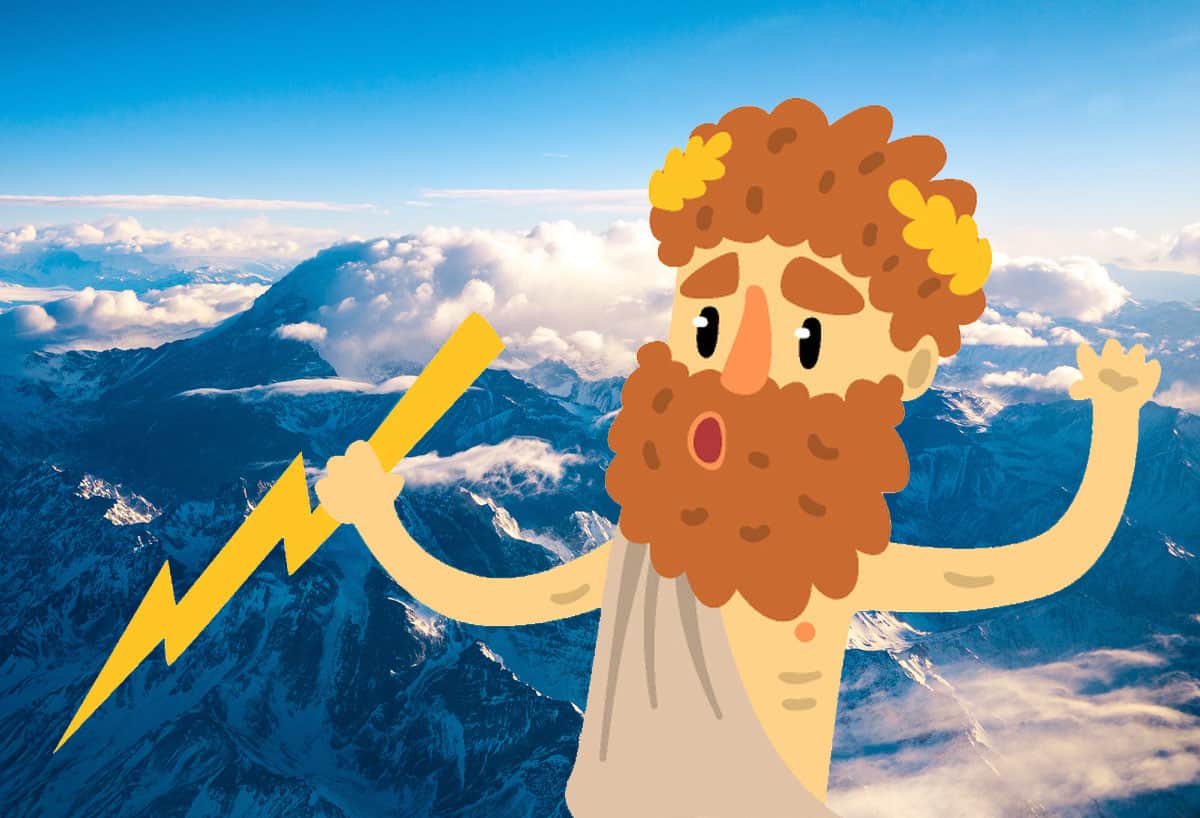
4. Zeus
Zeus was the son of Cronus and Rhea. He was the King of the Olympian Gods and God of the Sky. He had a number of children including Apollo, Artemis, Hermes, Heracles, and Dionysus.
In many of the myths he is portrayed as being benevolent, wise and just however he also had a vengeful, vindictive side to him. This temper of his could cause natural disasters on earth and he was also in the habit of throwing lighting bolts at random at characters walking around below. He was also often unfaithful to his wife Hera and had a number of children by these mistresses. These women very often ended up wronged in some fashion by the God or sometimes they even died, by his hand or by that of his wife.
There are many stories about this evil side to Zeus, a particularly cruel one involves Prometheus. The Titan God Prometheus had sided with Zeus in the Titanomachy and was seen as one of Zeus’ closest advisers. He was tasked with creating the first men and behind the back of Zeus he gifted them fire to help them survive. As revenge for the betrayal, Zeus had Prometheus tied to a mountain and each day a great eagle would peck out his liver. If that’s not evil and twisted, i’m not sure what is.
Zeus, much like his father Cronus, had received a prophecy that if his wife, Metis, had a son then this son would kill Zeus. When Metis became pregnant he decided he didn’t want to wait to find out if the prophecy was true, so he just ate her. She did however survive inside Zeus and weirdly his head was cracked open and out sprung Athena, the Goddess of Wisdom.
Another telling tale, when the first generation of men on the earth turned out to be too wicked for Zeus, he decided to have them all killed. He unleashed upon the world a great flood and all but two perished. So add mass genocide to his list of crimes.
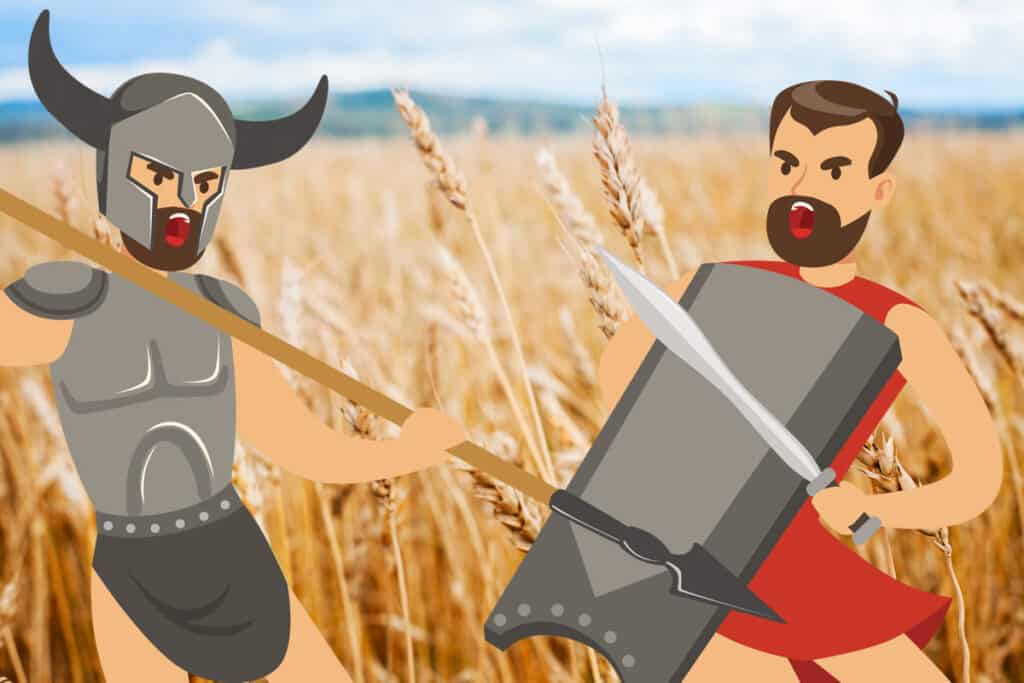
5. Deimos and Phobos
Deimos and Phobos were the sons of the Ares and Aphrodite. Phobos was the God of Fear and Terror while his brother Deimos was the God of Panic. The two brothers were said to often accompany Ares into battle. They were also very often joined by Ares’ sister Eris. The names of both Deimos and Phobos were feared and respected by soldiers across the battlefields of Greece.
The two brothers had particularly cruel personalities, truly revelling in the slaughter and destruction wrought by the often warring armies of Greece and the surrounding areas.
Phobos was often worshipped by many of the Greeks before great battles. The hope being that the opponents would flee the battlefield in fear. It was said that Alexander the Great prayed to Phobos before a great battle. The imagery of Phobos was also used on the shields of both Heracles and Agamemnon.

6. Hera
Hera was the daughter of Cronus and Rhea and the wife of Zeus. She was the Queen of the gods and supposed to be concerned with the family and childbirth. However, there are so many tales of Hera committing some jealous act of revenge. Her husband Zeus was always having affairs and while she did argue with Zeus about this, she more often took her anger out on the women or the children of these women.
There are so many stories it would be impossible to recount them all here, but just to give you an idea. There was the famed beauty Lo who Zeus was fond of, Hera turned her into a cow. When Paris chose Aphrodite instead of Hera as the fairest goddess, Hera dedicated all her energy to the fall of his city, Troy. Hera suspected Zeus was unfaithful with a nymph called Echo, she cursed Echo to only be able to speak the last words that were spoken to her.
And yet, probably the greatest stories are those of her vendetta against Heracles, the son of Zeus and Alcmene. When Hera heard that Zeus had had a son, she sent two snakes to strangle him in his bed. Heracles being a demigod, killed the snakes. Later, when Heracles was married with children, she caused Heracles to go mad and kill his own wife and children. When Heracles was attempting to complete the 12 labours she went out of her way to cause him so many problems. Pretty vindictive you might say.
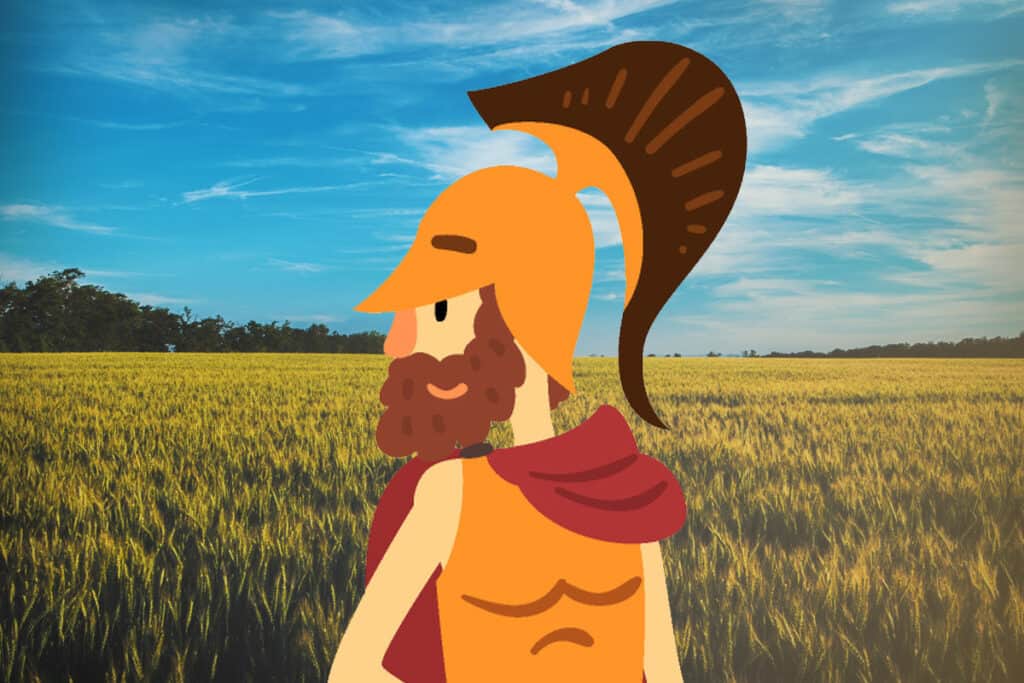
7. Ares
Ares was the son of Zeus and Hera. He was also the God of War. He never took a wife, but he did cause Aphrodite to have an affair with him.
He was seen as arrogant and violent and generally disliked by both the gods and humans. Very few worshipped him. He was a bloody minded character obsessed with killing, murder and slaughter. He had four horses name Terror, Fire, Flame, and Trouble. He was depicted as a strong warrior and also terrifying for his love of bloodshed.
He fought on the side of Trojans during the Trojan War and revelled in the death an destruction caused. He was also a jealous God, and when Aphrodite took the character Adonis as her lover, Ares transformed into a wild boar and gored him to death.
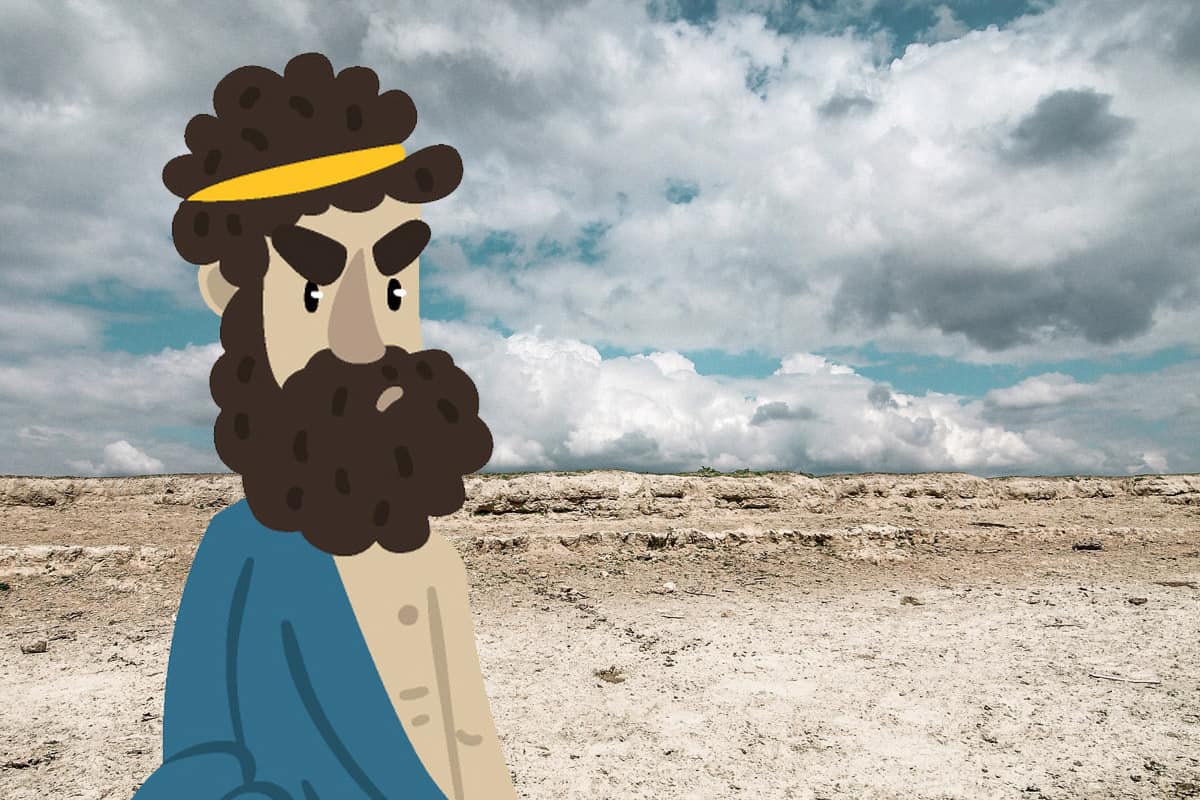
8. Hades
Hades was the son of Cronus and Rhea. He was the ruler of the underworld and king of the dead. He was married to Persephone and commanded the Harpies, a troupe of flying monsters who punished mankind. He was a cold and grim God who kept his distance from the other Gods.
He had a deep and calculating rage and was often very jealous at the other Olympian Gods. His kingdom was named Tartarus and the entrance was guarded by the three headed dog Cerberus, a fearsome beast. Once the dead entered his realm they could not leave. He valued death, he loved the sound of mourning and he would drink the tears of the bereaved. On the rare occasions tat he left Tartarus he would ride a chariot led by 4 black horses.
The most famous myth is when he abducted Persephone to be his wife. Persephone was the daughter of Demeter and Zeus. One day she went missing and in her grief her mother Demeter caused famine across the land. Zeus eventually discovered her location and negotiated her release, but only for half of the year, hence the seasons of the earth.
Very few made it into the underworld and returned, the only real success story is that of Heracles and the rescue of Theseus. The underworld was feared by all of mankind and Hades was seen as one of the more evil and dangerous Gods to encounter.
9. Hecate
Hecate was a goddess that ruled mainly over spells and magic, essentially, witchcraft. She was also the goddess of the moon so her power usually resided in the night hours. She represented the unknown, something inherently scary and evil to mankind with the amount of bad possibilities that could come out of it.
Hecate gathered a cult like following all the way into Roman era mythology as well which did not bode well for her. She is known widely in witchcraft circles and still worshiped by practitioners to this day. Though she was capable of both good and evil, her lasting impact has been a negative one.
The overwhelming association with night time and witchcraft only containing “evil” and “bad” things earned Hecate her brand as evil not-so-accurate branding. Did her reputation precede her? Not really. Throughout ancient Greek literature Hecate is referred to as a protective and generally good goddess. She even helped Persophone when she saw Hades steal her.
10. Enyo
Enyo was the Greek goddess of war and destruction. She was often seen by Ares, some accounts claim they are brother and sister while others claim they were companions. She is one of the gods depicted on Ares’s shield.
Wherever Enyo went she left a path of destruction behind her, destroying cities and causing general terror throughout the land. During the fall of Troy she was alongside Ares, Eris, Phobos, and Deimos inflicting terror and causing bloodshed. Other notable wars Enyo was involved in are the war of Seven Against Thebes and Dionysus’s war.
Enyo loves war more than Ares arguably. When Zeus fought the titan Typhon, she refused to pick a side so that she could watch the battle play out.
11. Moros
Moros is the personification of dreadful doom and is generally known as a hateful spirit. He spent his time driving humans to their untimely, and usually unpleasant, demise. Some accounts say that Moros had the power to let humans see when (sort of) and how they would meet their end.
Moros’s mother is Nyx, who is said to have had him by herself, while other accounts say that Erebus is Moros’s father. Regardless of whether he had a father or not doesn’t really matter in the grand scheme of things, his brothers all come from Nyx.
Moros was brother to the fates (Moirai), Thanatos, and Keres, both of whom represent death in their own way. Moros as a representative for doom was not known for easy deaths that he could provide, rather most he presided over were violent and painful.
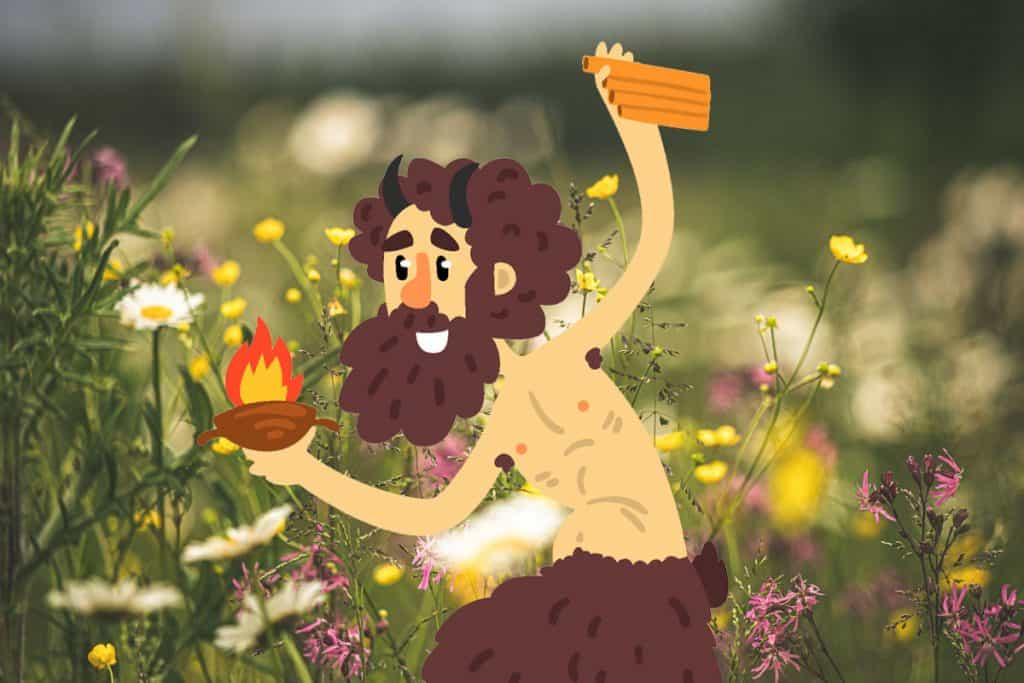
12. Pan
Pan was a Greek deity for fertility, usually depicted as half man half beast. The beast part has changed throughout time, but the most common mixture is half man, half faun. Pan is said to have been conceived in an orgy between Odysseus’s wife, Penelope, Hermes, and all of her suitors.
Hermes is credited as Pan’s father. Pan’s notorious pipe came with a dark backstory. Pan lusted after a wood nymph named Syrinx who ran away from his advances. Syrinx’s sisters turned her into a reed by a river to help protect her. Pan knew that she had been transformed but didn’t know which reed she was. So, he cut a bunch of the reeds into all different pieces and tied them together creating the pan flute.
He was rarely seen without the instrument after that moment. In another moment with a nymph named Echo that he lusted after, Pan sent his followers to tear her apart. Why? She had the audacity to scorn all men and Pan was not about to let that happen on his watch.
13. Antaeus
Antaeus was one of the giants that Poseidon fathered. Antaeus goaded people who were traveling in the country to wrestle him. The country being referred to is believed to be modern day Lybia.
Wrestling Antaeus was an unfair match to any regular person. His mother was Gaea, so anytime Antaeus touched the ground or earth, all his strength was restored and he fought/wrestled like it just started again. Touching the earth made him invincible. His opponents often found their untimely demise when coming across him in their travels.
Heracles figured this out during a battle and lifted him off the ground and crushed him to death with a hug in order to win. If it weren’t for this hero stopping Antaeus he would have continued his little game of death forever.
14. The Erinyes
The Erinyes also known as the Furies were female deities of vengeance and chaos. The Iliad refers to them as “the Erinyes, that under earth take vengeance on men, whosoever hath sworn a false oath.”
The Erinyes come from the blood that fell onto land after Uranus was castrated by his son, Cronus. They live in Erebus and predate the olympic gods. These ancient beings spend their time hearing the complaints of others and punishing the people being complained about harshly.
These sisters are Crones, wise old women, who had freakish appearances. They were described as having black bodies with bat wings and snakes for hair.
The Erinyes consisted of:
- Alteco — the wrathful one
- Megaera — the fierce one
- Tisiphone — the avenger
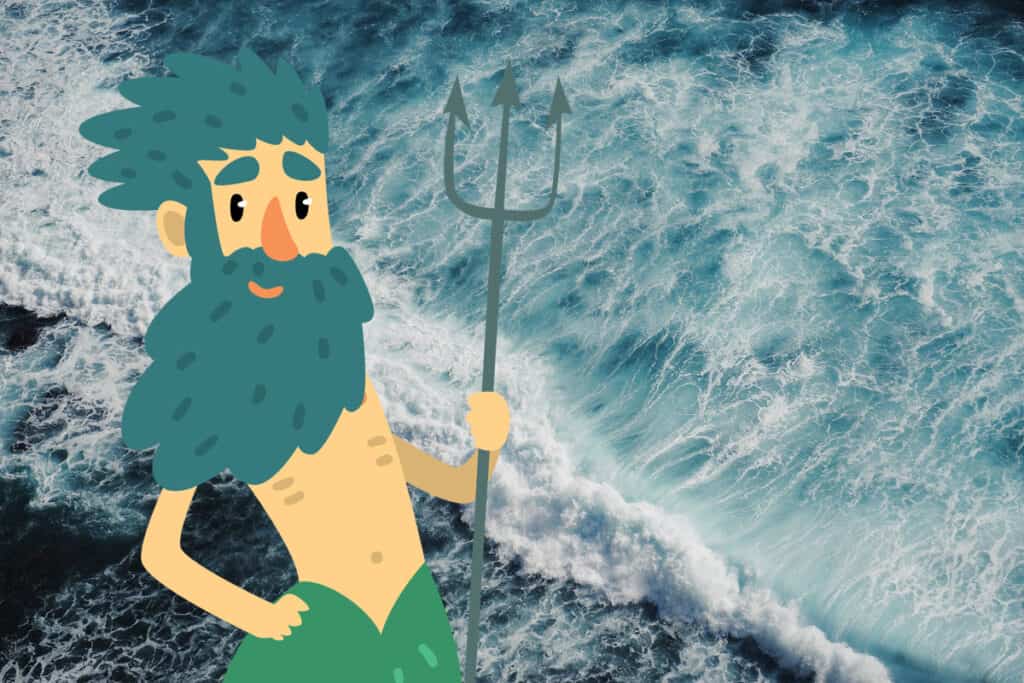
15. Poseidon
Despite his popularity, Poseidon, olympic god of the sea was generally bad tempered and known to be pretty vengeful. If he felt insulted by someone or something, the consequences were dire. Poseidon isn’t outright cruel, but he does have a pretty bad chip on his shoulder. He lets his ego get the best of him and struggles with uncontrollable anger.
This has pit him against other gods many times. Poseidon struggled with his jealousy of Zeus, he put himself into a battle of always doing everything better. When Zeus took the heavens as his domain Poseidon thought it was unfair. When Zeus took Hera as his wife, Poseidon started problems claiming he had a right to her as well. And so it kept going, causing constant problems and being a hassle to deal with.
His problems didn’t stop with Zeus, they extended to all the gods. When Poseidon lost a contest for the city of Athens against Athena he spent the rest of it’s existence working with armies that tried to take the city. Poseidon is evil in the sense that he is an egotistical mess that takes the people around down with him.
16. Phobeter
Phobeter was part of the Oneiroi as the personification of dreaming. Nightmares were his specialty and he would often find himself in dreams as animals or monsters. Phoboter is unique because there is no true physical form that has been reported on him.
When he’s in nightmares he’s constantly transforming into different creatures to scare his unfortunate victims. This makes it hard to pinpoint what he actually looks like because nobody has seen him. He even has a method to his madness, albeit pretty straight forward.
When he shows up in dreams as an animal it is to try to make the person relax or calm down, but when he appears as a monster its meant to terrorized to victim.
17. Atë
Atë was the goddess of mischief, ruin, and delusion. She could influence both god and human to make rash decisions and actions that would cause harm. This comes as no surprise with her father being Eris, one of the most evil gods.
In one instance Atë visited Dionysus and the boy he liked, Ampelus. Atë knew this and encouraged Ampelus to ride a bull in order to impress Dionysus. Ampelus fell for the trick and soon after fell off the bull breaking his neck. When Atë helped Hera change the birth order of her children Zeus became enraged.
He grabbed Atë by the hair and threw her down to earth, forbidding her from ever returning to Mount Olympus. From then on she wandered the earth walking on men’s heads rather than the ground wreaking havoc.
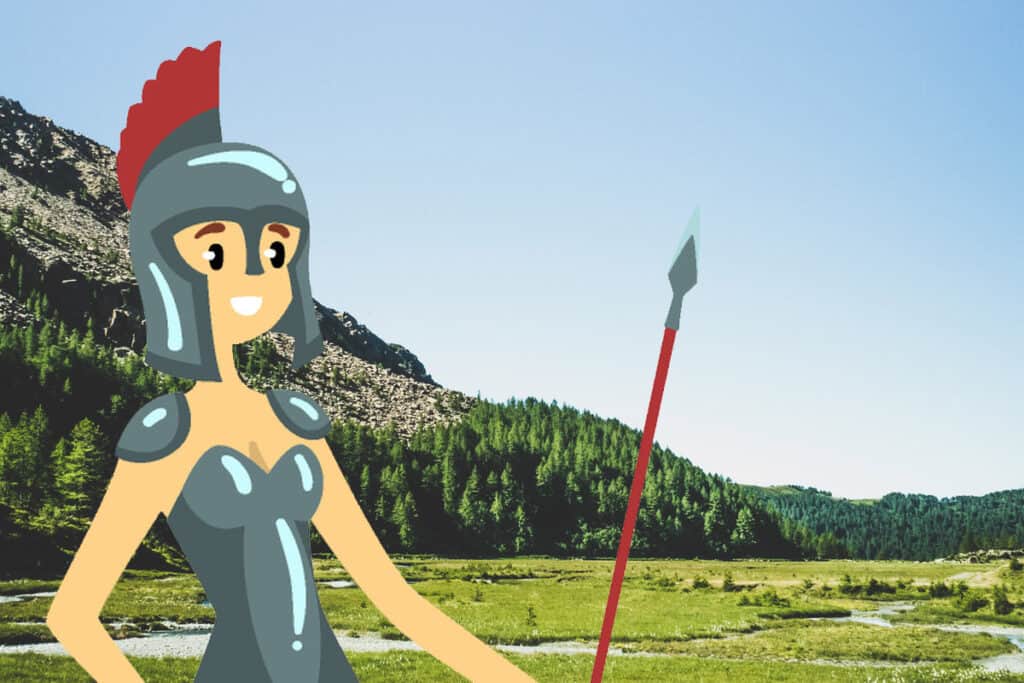
18. Athena
Last but certainly not least is Athena, goddess of wisdom and the evil side of battle. She was the patron god of Athens and did all she could to protect her Atheniens at the cost of their opponents. That in and of itself is more nationalistic than anything, but when it came to what she asked her people to do for her it becomes a little less noble.
The Atheniens would sacrifice obscene amounts of animals in honor of her, even to the detriment of themselves at times. Athena would not hesitate to sacrifice someone in order for her mission to be furthered. Since she followed no mortal scale of morality these deaths could be seen as senseless and cruel at times.
Athena has appeared in many myths throughout the religion where she curses one or more people as a punishment for their wrong doing. However, like Poseidon, she’s vain, gets jealous easy, and goes to extremes with her punishments.
Final Thoughts
So there you have it. The most evil and dangerous greek gods and goddesses. Having read the list you may think some of the characters don’t deserve to be on the list.
My advice to you is, don’t take this article too seriously. Feel free to comment below. Thanks!

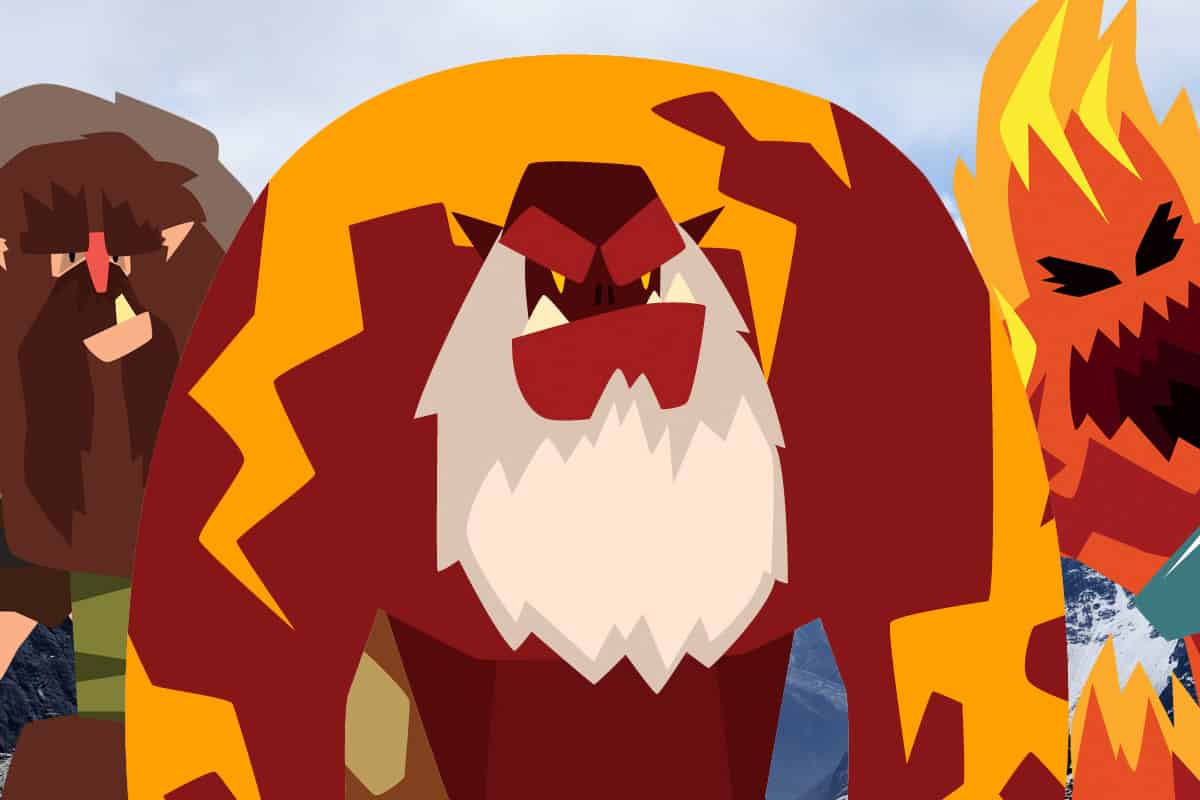

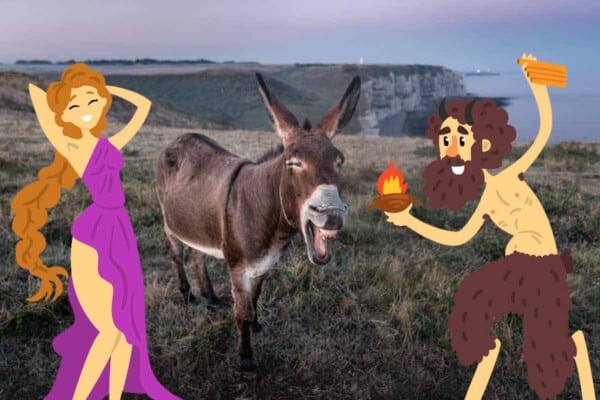
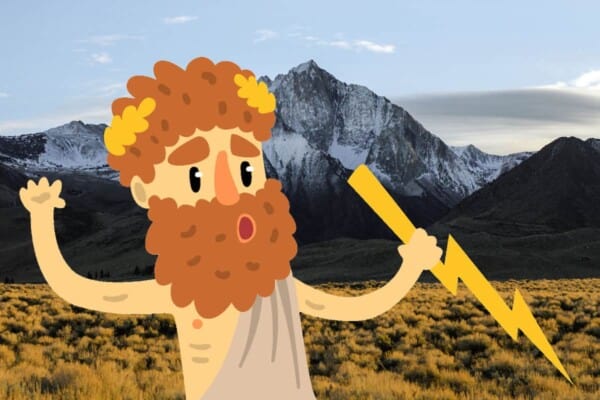
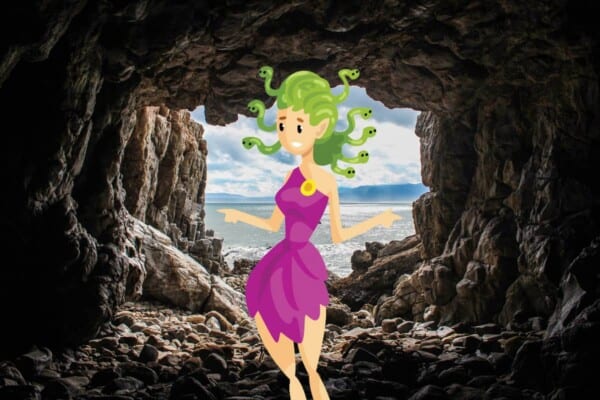
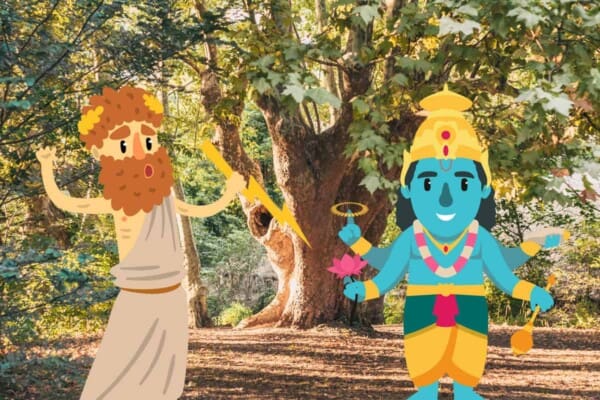


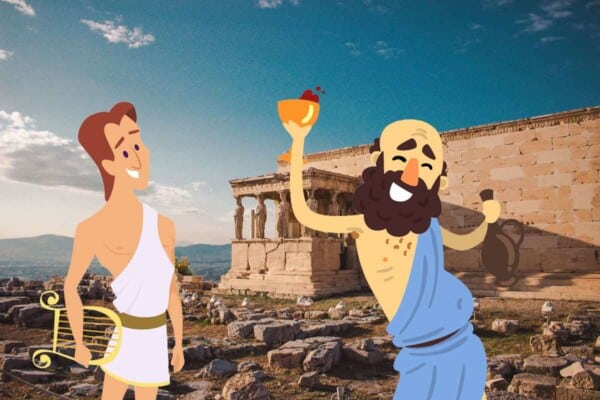
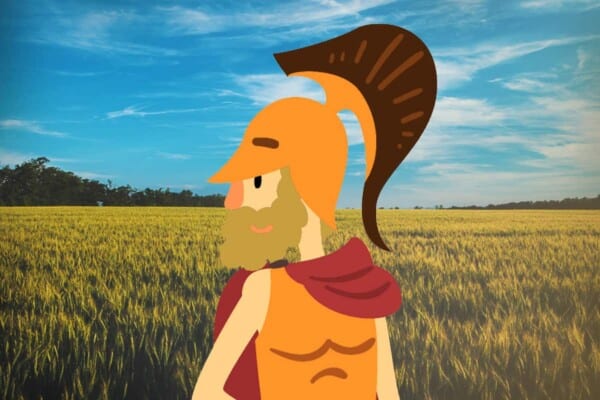



I love greek mythology all of it
I love the gods
i do too ive been studying it for a couple of years
i completely disagree with this list especially with the placement of Hades and Hera in the top three as i believe Hera’s reaction to Zeus sleeping with other women was perfectly rational given the circumstances, and hades is not shown to have done anything to deserve the title of being the “evilest greek god” and i feel that the reason this was done was because that he could be associated with the christian devil as he is in charge of hell just as hades is in charge of the underworld, but the similarities stop there, Hades was a good guy in greek mythology, you also have to consider the time period when majority of greek mythology was written.
I disagree the inclusion of Hades in the list. I think that as he was the lord of the underworld he was feared, although Thanos was the God of death.
I think Hera is also wrongly vilified.
Thanos is a Marvel supervillain, Thanatos is the God of Death
Yes! Hers was just being fair, a husband just can’t cheat on her!And Hades, well.he doesn’t do all the things they said and also, he created winter.(by kidnapping Persephone) Don’t u like winter?
Hell yeah! winter is the best season ever!
I agree in total that hades was unfairly placed. Hera should have been placed farther back, but she deserves a spot. For a familial goddess, she had no patience with zeus’s affairs. I am also surprised that Erie was so high up. The apple legit shows how vain the Olympians were, so why is Eris near the top and not Hera?
I know right. Everyone says that what Hera did was right just because her husband cheated on her. She also cheated on him. She literally disowned Hephaestus because he came out crippled. She disowned her own son! Also, just because her husband cheated on her doesn’t mean that she should take it out in the women and children. She should take it out on Zeus. It is not really the women’s faults as Zeus could have made the women think that he truly loves them and that he doesn’t love Hera. Also, why take it out on the kids? They didn’t decide to be born to Zeus. Why would you punish someone for something they didn’t even do just because you are jealous and have the power to. That is so wrong.
Everyone does
Hecate
Why is nobody mentioning Hecate?
She isn’t that bad believe it or not
i love hecate, she is actually also the goddess of childbirth (along with death.) as a witch, i work with her, and she has shown me great kindness so far.
Hecate is not really bad. She is just the Titan of Dark Magic. She didn’t really do anything wrong
Hahahaha Yup Hecate’s evil….
i did not mean to cause any argument, i was simply just expressing my opinion on why i disagree with the list. I do not believe that i am right or wrong in any sense these are only my opinions on the list.
Hades isn’t evil, in fact, Persephone’s “abduction” is nothing more than an arranged marriage and she didn’t mind it as much as her mother did. People tend to think about Hades as the devil due to him presiding over the dead, and also due to terribly inaccurate Disney movies, but in all honesty he’s doing his job, not only tending to the dead, but guarding Kronos who is imprisoned in Tartarus. In all accounts of the living going to the underworld and interacting with Hades, he never attacked, cursed or maimed someone who didn’t deserve it. And you say that he’s jealous of the other gods, which is something I disagree with as well… Hades is literally the richest of the gods, and he’s got a beautiful wife, to whom he is loyal enough not to cheat on (some devil figure, right…). Hera being there is up for debate though, you see she actually is justified in the fact that her actions are caused by a spouse who just isn’t loyal, but she isn’t taking it out on said spouse… This doesn’t mean that she’s evil though, it just makes her irrational. Then, I read a comment here somewhere about Hades giving us winter, to which I have to say… Wrong. It wasn’t due to Hades kidnapping Persephone that caused winter, it was due to Persephone’s mother, Demeter, being irrational and throwing a hissy fit because mother daughter time got cut short and she has issues… If you’re still following, and think back on all those stories about the Greek gods and their interactions with each other and with mere mortals such as yourself, then I’m sure you just realised that these gods seem pretty human, I mean, they actually have personalities, they’re flawed at times, but great at other times… They’re fleshed out far beyond just being a name with a place in a story. Shocking, I know, I thought Dionysis was the only cool one. Point is, evil is subjective, these gods have jobs, they have purpose, and that includes Hecate (I’ll admit she is pretty Op though)… Saying they’re evil because of what they’re supposed to do is like calling a judge evil for having to convict people for crimes or a mortician evil for arranging burials or cremations, or the guy who works at Starbucks evil for making you wait for your caramel late.
This is the funniest comment i’ve read yet!
I agree with the Hades part. Hades is not wrong. He loved Persephone, and Persephone is starting to return that love for him now(or so many people believe). Hades is actually one of the least troublesome gods
Wow, such a long, descriptive, and very true comment
Hades is not an evil character
Whaaaaaatttttt?
he isn’t evil, he asked for her hand in marriage and Zeus agreed and he only got her back because he didn’t want demeter to starve the humans. Also this loved sounds of mourning stuff I don’t know where they get that from.
I agree with ya
If you look back at Greek mythology, Hades never did anything bad,and he only messed up one person,Pirithous,but that’s because they tried to kidnap his wife.
Sure he kidnaped Prosephone,but kidnapping your future wife was common and not as bad back then,and their relationship was pretty functional for the most part,and besides he got permission to marry her,he asked Zeus to stop Aesculapius to stop resurrecting the dead,but it’s not his fault that Zeus interpreted that as set the guy on fire,he helped Orpheus reunite with his dead wife,and hey it’s not his fault that the guy did the one thing he shouldn’t have done. Also Cerberus might even mean spotted,so he named his dog spot.
(This isn’t a hate comment and I know that it said shouldn’t take this seriously and I’m not I’m just blowing off steam)
Its persephone
Tartarus was a primordial god who ruled the pits of Tartarus. Hades ruled in the underworld; Elysium, Asphodel and the fields of punishment.
Yes Hades ruled the underworld, Tartarus was the deeper depths in which the worst of souls dwelt.
Okay, I also disagree with the placement of many of these gods and goddesses, but what’s the point of talking about it when it’s been said by so many people? No, I just wanted to point out a small inconsistency. Hades’ kingdom is actually called the Underworld. Tartarus is a separate place, with only an entrance in Hades’ kingdom. Tartarus is only for the worst monsters and Kronos was thrown in there. Hades has no power over it. Okay, that’s all I was going to list! Thank you for writing this article, I was looking for some ideas!
(Also not a hate comment or anything, just that one part that slightly bothered me. Not really taking this article seriously or anything though!)
Ok the explanation of Hades’ actions is very much under explained. Hades had feelings for Persephone but never knew how to handle a situation like that, Zeus being Zeus said he should bring her to Hades (the Underworld, Hades is also the name of Greek Hell as well as the God, Hades is Hell, it’s complicated) so Zeus was mainly responsible for Persephone’s kidnapping. Also, Zeus didn’t negotiate for her release. Gaia went to Zeus for help, he told Hades what was going on and Persephone loved Hades so she decided she would stay in Hades for 6 months of the year and be with her mother for the other 6.
If you want good explanations for the Gods and their stories, check out OverlySarcasticProductions on YouTube. Because Hera and Hades don’t have any place among these Gods, in fact Hades is one of the few who doesn’t have any myth where he r*pes someone. Zeus, Poseidon, Dionysius, Apollo all have atleast one.
I would think that Kronos is 1 on the list but it is matter of opinion.Why is Zeus on the list because he was powerful but not dangerous but he sort of cruel in a way banishing hades to the underworld.Hera I think should not be on the list like some of you have said.
Hades was not banished. Close, but quite a few sources say it was just some sort of lottery. Others say it was because he was most responsible. I agree with you on the rest though. I’m just pointing out.
It was the lottery, they cast lots.
I believe hecate should be on the list and not hera because she is the godess of magic and is often trying to overthrow the gods.
She doesn’t really. She is actually now peaceful. Just because she is a Titan, everyone thinks she is evenly due to the past
For the people that said Hera was “justified” in her actions and shouldn’t be on the list, I suggest you rethink your opinion. If Hera punished Zeus for his actions I would agree, but instead she punished the innocent offspring and the women that Zeus mainly tricked or raped…She made Heracles kill his own family…so disfiguring or killing innocents doesn’t make you a good god…IMHO I would say she was #1. All the other gods on the list were simply reacting to bad behaviour of the other gods or the poor decisions of Mankind….but Hera killed indefensible innocent people out of pure jealousy, that’s pretty evil.
Great points!
Yea Hera being #1 is something I would not object to, and neither would others, I’m sure. All her actions are completely unjustified. Its not like the children chose to be born out of a bad action done by Zeus, they’re stuck there.
Honestly, Hades is not evil. Zeus is actually evil as he stripped Poseidon and Hades off their powers for a pretty stupid reason. Also, Cronos didn’t eat his wife. He ate the children. Hestia, Zeus, Poseidon, Hades, Demeter and Hera survived. Also, Hades rules the underworld, not Tartarus. Tartarus is ruled by Tartarus, a primordial god. Please recheck your facts.
I have never seen anyone say that before! Thank you for sticking up for these crazy gods 🙂
Yeah, Hades isn’t evil… Poor guy, no one give him a break….
Yes. Feel some sympathy towards a guy who lost a lottery and has to rule the underworld. It really wasn’t his fault. He was unlucky, and had to suffer. I think, however mythical he is, he needs to be allowed to not be looked upon as an evil death god.
This is a bit brief and lacks a fair bit of depth. Hecate, while magic and witchcraft are associated to her, its not inherently evil. She was a goddess of boundaries and widely worshiped, with her myths showing her as quite benevolent as she took pity on Hecuba (trojan queen) and Galinthias (midwife to Hercules mother) after they had been cursed by the other gods. She was quite impartial with her blessings of wealth, bestowing them based on the persons merit. This is just a brief example.
In the case of Hades, yes he did kidnap Persephone, but he didn’t force himself on her. The perception of him is honestly quite wrong in modern society. when you look at it objectively, he was a faithful and loving husband, honestly a role model compared to Zeus.
This list is stupid!!!! you didn’t even mention Gaia, Tartarus or even Ouranous!!! And Athena is not evil, But Gaia, who you did NOT mention, is the worst of all, other than maybe Tartarus or Chaos.
might be interesting but seems to be myths or different story threw many years didnot mention Goddess of LOVE is APHODITES always positive Daughter of GOD Zeus newversion mention son or evil Gods just like many version of bible storys…